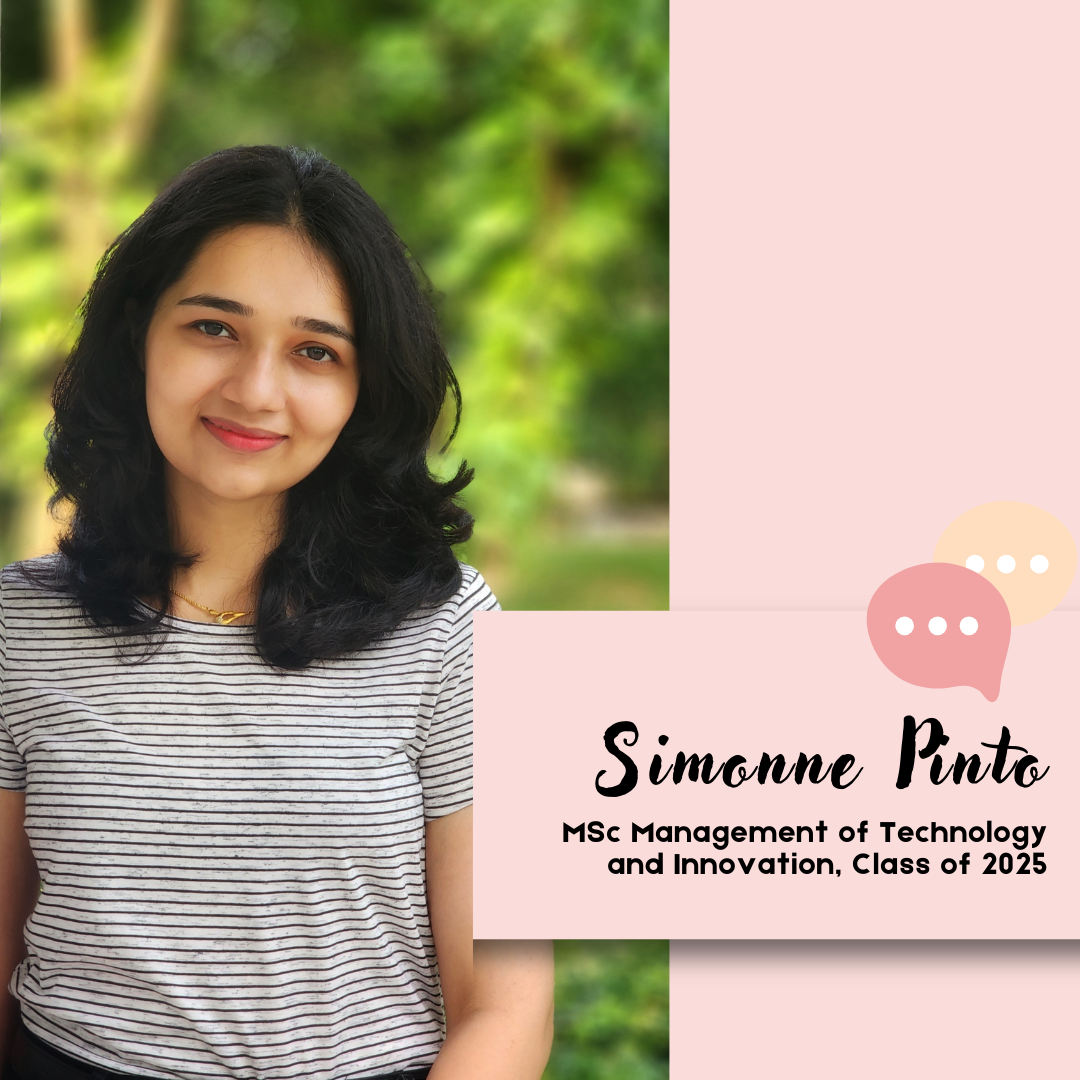MSc (MOTI) student - Simonne Pinto
Why did you take up the MSc MOTI programme?
Simonne: I completed my Bachelor’s degree in Computer Science and was working as a Software Engineer in India. While most of my work was around writing algorithms and building efficient systems, I realized that understanding the "why" behind decisions mattered just as much as the technical specifications.
To truly make an impact, I needed to understand how business decisions were made, how markets operated, and how strategies were formed. This led me to join the MSc programme, where I could complement my technical skills with a deeper understanding of management.
How did the MSc MOTI programme transform your thinking?
Simonne: The programme has been more than just an academic pursuit; it's been a journey of discovery. I’ve developed an international perspective by networking and working with peers from diverse backgrounds and nationalities. Beyond academics, I’ve built meaningful and long-lasting relationships with my classmates and faculty.
I’ve gained exposure to new concepts like venture capital, product development, and strategy. These modules helped me understand global trends with a new lens, where I can see the application of the different concepts taught in class to real life scenarios. The programme has helped me become a more well-rounded individual, where now I can confidently share my perspectives on various topics, backed by a better understanding of business and technological forces driving today’s world.
What is the most surprising insight you have gained from the MSc MOTI programme?
Simonne: The most surprising insight I’ve gained is how deeply interconnected everything is—technology, business, and people. When I first started, I thought the programme would be a lot about gaining hard skills—analysing markets, learning management frameworks, and so on.
But what I didn’t expect was how much emphasis would be placed on understanding human behaviour—how culture, psychology, and even empathy play a huge role in decision-making at all levels of an organization. For example, one of my biggest takeaways is how important emotional intelligence is for leadership. You can have the best strategies, the most cutting-edge technology, but if you don’t understand how to work with people—especially in a diverse and global setting—it’s hard to create a lasting impact. This insight has fundamentally changed the way I approach challenges now, as I now look at both the technical and human sides of any problem.


